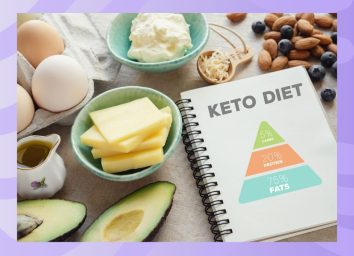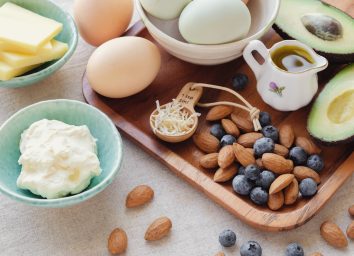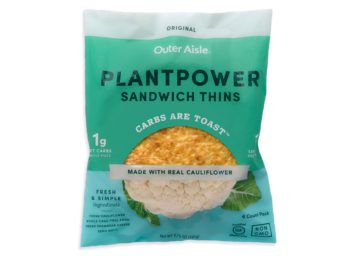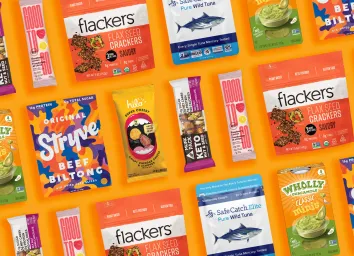What Are Keto Headaches? We Asked the Experts
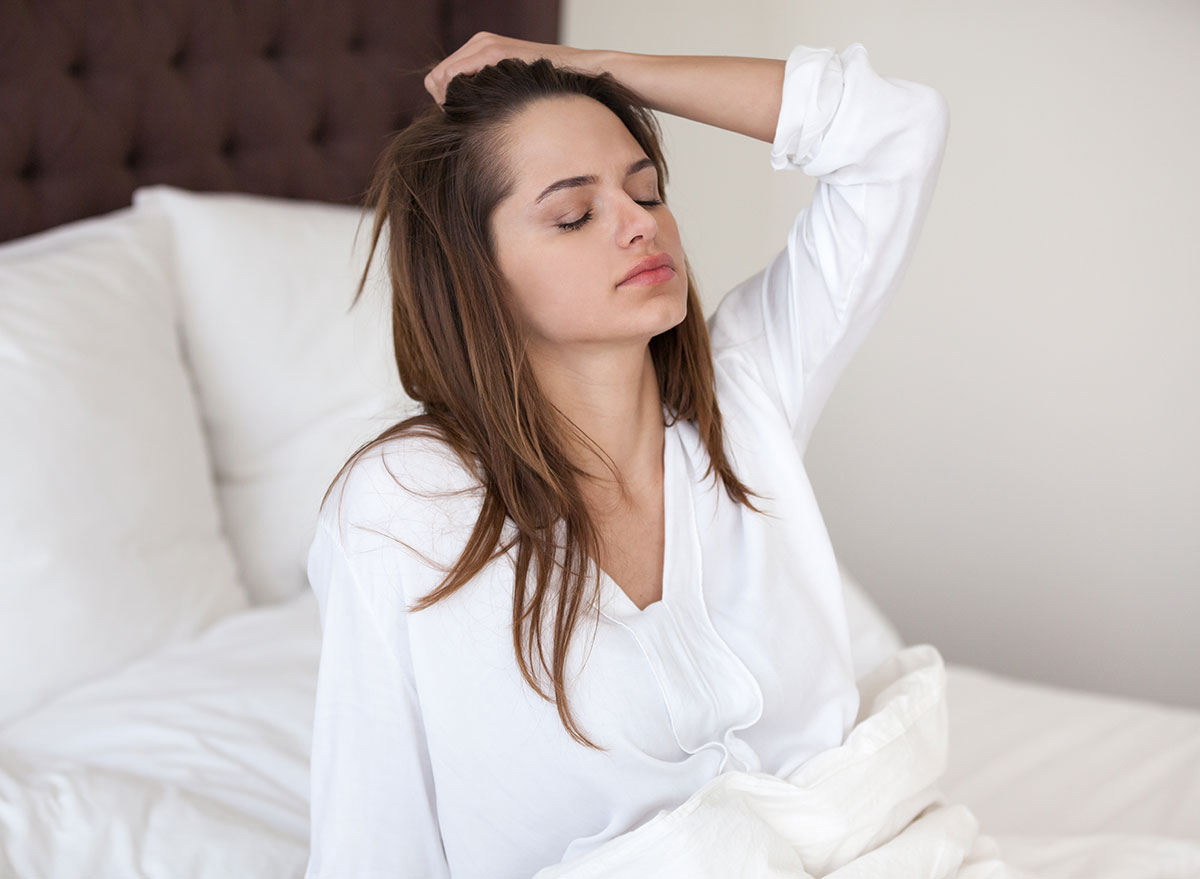
It’s day three of your keto diet, and everything seems to be going well when, boom, it hits you: the keto headache. While less well-known than its dreaded cousin, the keto flu, the keto headache can make you feel miserable and second guess your whole dieting plan.
But, the keto headache doesn’t have to be a mystery, and, with a few precautions, it doesn’t have to be a part of your keto journey.
Keto flu vs. keto headache: what’s the difference
When done correctly, the keto diet allows the body to enter a state of ketosis, in which the body shifts from burning sugar and carbohydrates to stored fat. Typically, dieters are able to achieve this by eating high-fat, low-carb foods, aiming to consume between 20 and 50 grams of net carbs per day.
As your body adjusts to being in a state of ketosis, the transition can create some negative symptoms.
“Your body’s response to entering ketosis can often mimic symptoms of the flu, thus the name ‘keto flu.’ Essentially, you’re feeling the symptoms of withdrawal from carbs,” says Gabrielle Mancella, a registered dietician at Orlando Health, explaining that the body burns carbohydrates and glucose for energy by default, so switching to a fat-burning process can cause confusion to the system.
Keto flu symptoms include nausea, vomiting, fatigue and, of course, headaches. Don’t worry; unlike the normal flu, this one isn’t contagious.
While headaches can be a symptom of the larger transition, they can also occur independently without experiencing any of the other symptoms.
The keto headache is one of the most common symptoms reported by people when starting a keto diet, said Cedrina Calder, MD, aka FitDoc, a preventative medicine doctor based in Nashville.
What causes the keto headache?
“It is likely that the headache is caused by dehydration or electrolyte imbalances from eating a diet low in carbs,” says Dr. Calder. “Low-carb diets decrease the level of insulin in the blood, which can cause an increase in urination and imbalance in electrolytes.”
Electrolytes have become somewhat of a buzzword within the keto community, but, beyond the hashtags and sponsored content, the science behind them can be a gamechanger when it comes to avoiding the keto headache.
In the context of diet and nutrition, electrolytes are the minerals that are dissolved in the body to create electrically charged ions. Electrolytes are “very important for proper function of cells and organs of the body,” Dr. Calder said.
The electrical charge in electrolytes helps regulate many of the muscular and numerological functions within the body. Imbalances can cause everything from irregular heartbeats and twitching to seizures and, of course, the keto headache.
Different electrolytes play different roles in aiding the body to control and regulate fluids. Mancella added that low levels of electrolytes can also affect overall health, and the most common imbalances are sodium and potassium.
Imbalances can cause dehydration, which can further intensify the effects of the keto headache.
“Water is simply not enough to hydrate,” says Mancella, explaining that hydration does not necessarily mean water intake. Rather, hydration means that the fluids in and out of your cells are in balance.
People may take stock of their hydration levels in different ways, including carrying around less water weight, feeling less bloated, passing clear urine, or having hydrated versus flaky skin.
RELATED: The easy guide to cutting back on sugar is finally here.
At-home remedies for relief from keto headaches
The best way to beat the keto headache is not to get it at all.
“To avoid getting a keto headache, dieters should ensure that they are well-hydrated and eat a diet rich in sodium, potassium, and magnesium,” says Dr. Calder. Making sure you are consuming enough salt in your meals is a good preventative step.
And when that isn’t enough, just like sports drinks can help balance electrolytes after a sweat-inducing exercise class, they can also help in avoiding the keto headache. To keep it keto, the drink would need to be sugar-free, unlike the average Gatorade.
“When working with a keto diet, it is a priority to focus on supplementing with the right vitamins, minerals, and methods of hydration,” Mancella says. “Due to limited electrolyte intake from fat sources and protein sources, an electrolyte tablet or supplement may assist in preventing a throbbing headache or muscle cramping throughout the day.”
However, Mancella explains it is not generally recommended to rely on supplements and over-the-counter vitamins to comprise essential nutrients in our diet.
Generally, the symptoms should resolve themselves within a few days. So, if symptoms last longer than that, it may be time to check with your doctor to see if there is a more serious underlying cause.
“A person should go to an emergency room to be evaluated if they experience a severe headache that does not improve despite rehydration and electrolyte replenishment, or a headache accompanied by fever, dizziness, nausea, vomiting, changes in vision, confusion, weakness, or change in speech,” says Dr. Calder.
Bottom line
Fear of the keto headache alone should not be reason enough to deter people from trying the keto diet.
“Ultimately, a headache should be treated as such,” says Mancella. “That being said, if the alternative is continuing to eliminate entire food groups—beans, grains, fruits, vegetables—for the immediate gratification of seeing aesthetic results and suffering from flu-like symptoms, it may be best to consider a different method.”
Generally, she advocates that dieters consider a more holistic approach to dieting that doesn’t eliminate large food groups.
“When we switch to diets such as the keto diet, we are eliminating most sources of vitamins and minerals,” says Mancella. “Meat products such as chicken breast or steak do not contain many phytochemicals, vitamins, minerals, and other beneficial components that we obtain from plant-based foods.”
However, for many, the benefits of the keto diet can outweigh the potential downsides. Educated, preventative steps reduce the risk of the keto headache, and easing into low-carb eating can make the transition period feel more manageable.
As with any side effects with a new diet, concerns are best handled by a health care professional.
A headache is never fun, but it can be avoided, and all of the delicious keto recipes out there can cushion the switch into ketosis. And, when all else fails, eat a few salty pickles and remember the keto headache is only temporary, and the benefits can last forever!
